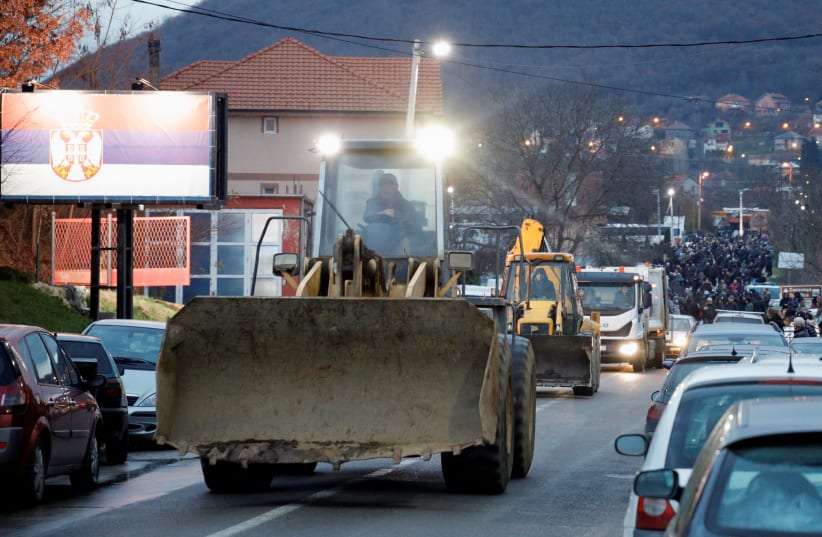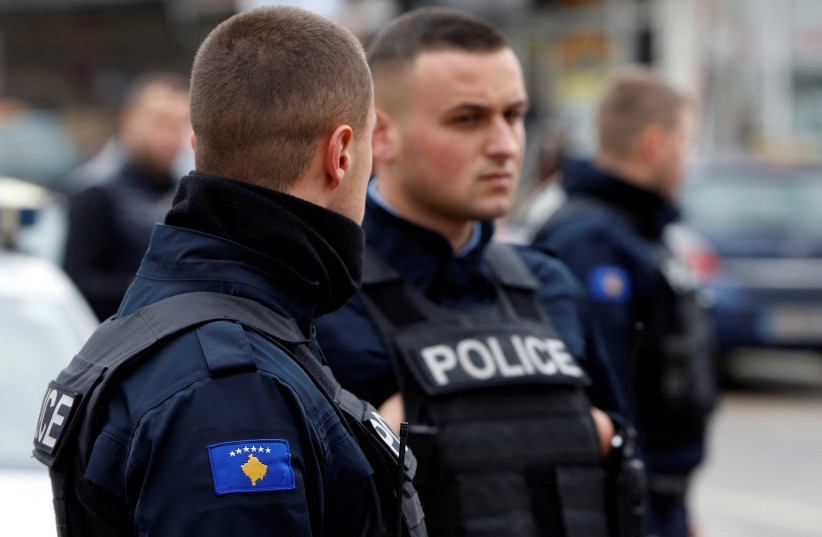Serbian President Aleksandar Vučić announced on Saturday that his country intends to ask NATO to allow Serbian forces to enter Kosovo as tensions rose between Belgrade and Pristina.
The announcement comes just days after Kosovo sent increased police forces to northern Kosovo in response to a number of violent incidents in the area, including an armed attack on a police officer.
Vučić noted Annex 2 of the UN Security Resolution 1244 which states that “an agreed number of Yugoslav and Serbian personnel will be permitted to return [to Kosovo] to perform” certain functions, including maintaining a presence at border crossings and to liaison with an international security presence.
The Serbian president added that he "has no illusions and knows that they will reject that request" and that the government would consider further steps after submitting the request.
“Our fight is yet to come, we have shown every desire for a compromise, and they have done everything to make the normal life of Serbs in Kosovo and Metohija impossible,” said Vučić.
NATO has not as of yet responded to the comments by the Serbian president.
The Serbian president added that expects international pressure on Serbia to increase after December 17. Kosovar officials have stated that they plan to submit an application to join the European Union by the end of the year.
Kosovo PM: 'We will respond to aggression with all the power we have'
In response to Vučić’s statements concerning sending troops to Kosovo, Kosovo Prime Minister Albin Kurti stressed that while his country does not want conflict “we will respond to aggression with all the power we have.”
Addressing the incidents of blocking roads and gunfire in northern Kosovo, Kurti warned that “any non-punishment decided by the EU and the USA for this orchestrated violence will encourage Belgrade officials to make more incitement to destabilize Kosovo.”
On Thursday, Kosovo police announced that they had deployed increased forces in northern Kosovo after a series of violent incidents, including an attack on a police officer.
In response to the increased police presence, the Serbian director of the office for Kosovo, Petar Petković, stated that Serbia may send 1,000 members of its security forces to Kosovo, referring to UNSC Resolution 1244.
"I hope that those who need to reason with Kurti understand this message, because we will not allow our people to suffer. Let those in the west be careful, so that they are not surprised by our decisions, because we are not the ones who provoke and violate agreements,” said Petković at the time.
On Friday, Kosovar President Vjosa Osmani stressed that “There will never again be police and soldiers of Serbia in the territory of the Republic of Kosova. Serbia’s hegemonistic dream will never come to life!”
Kosovar officials report violence in north of country
On Saturday, Kosovar police reported that a number of “criminal groups” had blocked several roads in northern Kosovo and had fired at police units. The police added that officers responded with fire, leading the people to run away.
Serbia’s state media outlet RTS reported that two explosions were heard in the area of the barricades, adding that the barricades were set up as a sign of protest.
After the roads were blocked, police closed the Bërnjak and Jarinje border crossings between Serbia and Kosovo.
Kurti called for the barricades set up in the north of the country to be removed immediately on Saturday night.
Kosovar officials decided to push off local elections which were set to take place soon in northern Kosovo to April on Saturday in an effort to calm the situation.
Escalation comes a month after tensions spiked over license plate rules
In November, tensions rose between Serbia and Kosovo as Serbs serving in official positions and in the police in northern Kosovo resigned, with both sides accusing the other of unilaterally breaching agreements reached between the two countries.
The resignations came as Kosovo began slowly implementing a decision that had been postponed during the summer to require Serbians visiting Kosovo to replace their Serbian passports with a temporary ID while in the country and to require Serbian license plates in the country to be replaced with Kosovar license plates.
Later in the month, Kosovo and Serbia reached a deal concerning the license plates, seemingly avoiding an escalation.

